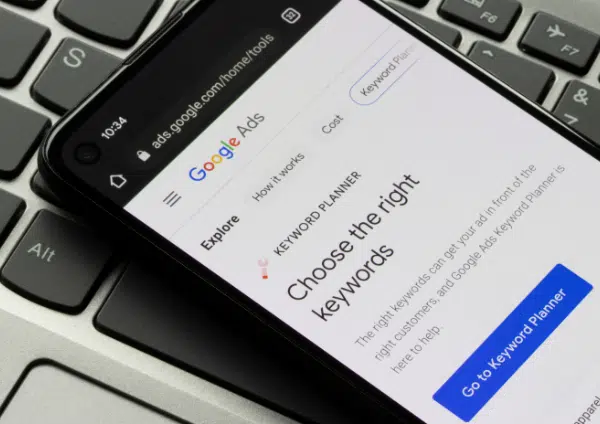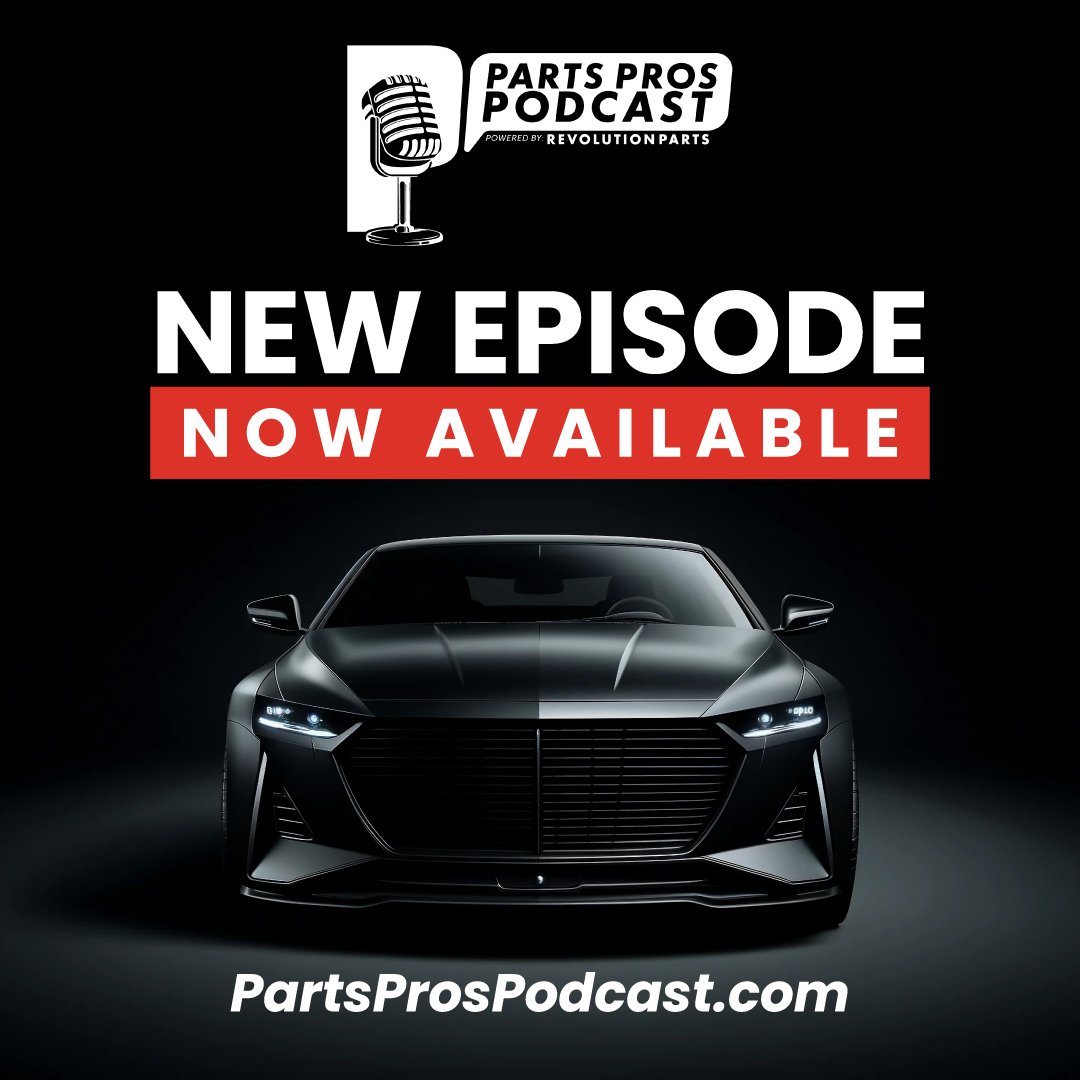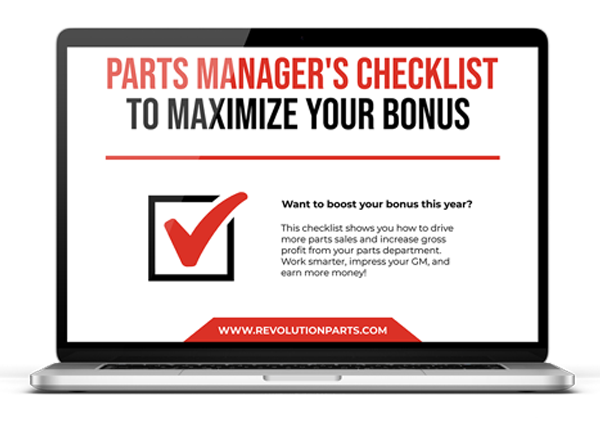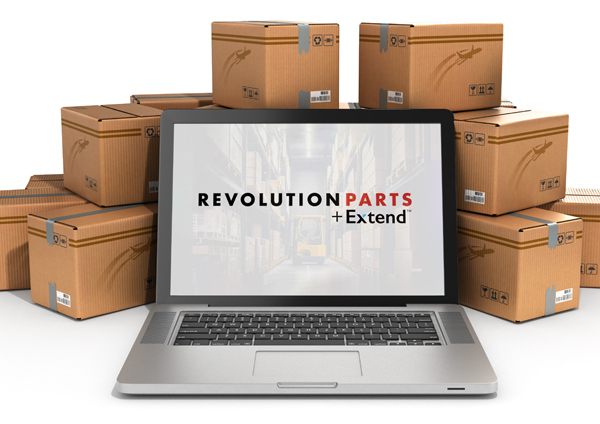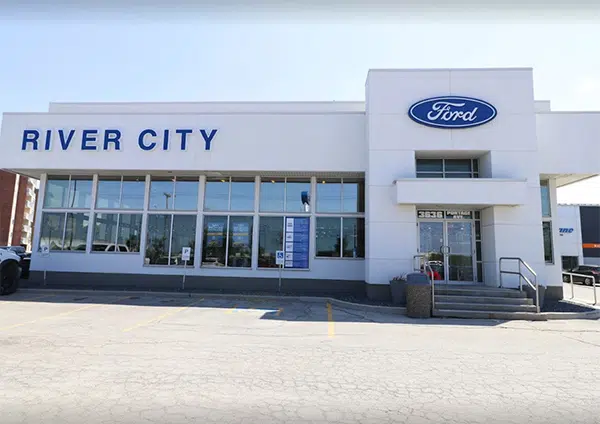Effective keyword research is the heart of search engine marketing. By understanding keywords, you can make sure your campaigns find their ideal customers and that your landing pages can convert efficiently. Knowing how to conduct keyword research and understanding how keywords fit into your ads is your first step to using Google Ads effectively.
Keywords and How They Affect Paid Advertising
What are keywords? Keywords are the words and phrases that shoppers enter into search engines when they’re looking for products or services like yours. These terms are the lifeline of your paid advertising campaigns. You place bids on certain keywords, and then Google promotes your ad on user search queries that relate to those keywords.
If they click on the ad, Google charges your payment method for that click. Keywords with more users placing higher bids have a higher cost-per-click, while keywords with less demand have a lower cost. This adds another dimension to keyword strategy, depending on your ad goals. If you’re selling a product, you want to target the lowest-cost keywords with the best likelihood of leading to a conversion – the user buying your product after clicking on the ad.
Keywords vs. Search Queries
While often used interchangeably, keywords and search queries are not the same. Keywords are conceptual targets for marketing, representing the terms we expect users to search for. Search queries, on the other hand, are the actual words that users enter into search engines. While keywords and search queries can be exact matches, the keywords you target don’t have to be exact matches to show up in a search query.
This element of keyword selection is a double-edged sword. Ads targeting broad phrases like “auto parts” can appear on a wide range of search queries, which can help you generate more leads. However, they can also cover specific keywords such as “aftermarket auto parts” or “auto parts Kentucky” that might not cover your product offerings. When you’re deciding which keywords to bid for, you need to keep search intent, the purpose behind a person’s query, in mind to target your keywords.
Negative Keywords
Negative keywords are terms for which you specifically do not want your ads to appear. In an ad campaign for auto parts, excluding terms like “used” or specific brands you don’t sell can exclude unwanted traffic. This makes negative keywords a valuable tool for increasing the precision of your targeting, cutting your ad costs, and generating more qualified leads.
Finding Great Keywords for Paid Advertising
There are many different techniques you can use to find suitable keywords for your ad campaigns. Here are five principles and strategies you can apply to help make your paid advertising a success:
Step 1: Understand Your Audience
Knowing your audience is crucial. Is it local repair shop owners, DIY car enthusiasts, or maybe other dealerships? Understand their needs, the terms they might use to search for auto parts, and their common queries.
For example, your audience might be private luxury vehicle owners looking for OEM parts that maintain their vehicle’s warranty and performance. They might value quality and authenticity and often search for the best options available near them.
Step 2: Use Keyword Research Tools
This is where the fun begins! Dive into keyword research with tools like Google Keyword Planner and Bing Keyword Research Tool. Use broad terms related to your parts and analyze the suggestions. These tools will give you insights to help you gauge the potential success of your keywords.
Key Results to Pay Attention To:
-
- Search Volumes: Number of searches a keyword receives on average over a specific period, indicating its popularity.
- Competition: Measure of how many advertisers are bidding on a particular keyword, reflecting how difficult it may be to rank for.
- Cost-per-click (CPC): The average cost you pay each time someone clicks on your ad when it appears using that keyword.
- Search Volumes: Number of searches a keyword receives on average over a specific period, indicating its popularity.
Starting with a broad term like “luxury car brake pads,” use the Google Keyword Planner to find related keywords. You might find terms like “premium brake pads for BMW,” “OEM brake pads near me,” and “high-performance brake pads for luxury cars” with varying search volumes and CPC data.
Step 3: Consider Keyword Types
Experiment with different keyword matches to target your audience.
Broad Match
Your ad may show on searches that include misspellings, synonyms, related searches, and other relevant variations.
Example:
“luxury car parts”
Phrase Match
Your ad shows on searches that match a phrase or close variations of that phrase with additional words before or after.
Example: “replacement brake pads luxury”
Exact Match
Your ad shows on searches that match the exact term or are close variations of that exact term.
Example:
“OEM brake pads for Audi A8”
Benefits of Each Match Type:
- Broad Match: Captures a wide audience, increasing traffic but with less precision.
- Phrase Match: More targeted, attracting users searching for specific phrases.
- Exact Match: Highly targeted, yielding higher conversion rates for specific search terms.
Step 4: Evaluate the Competition
Use tools like Google’s Auction Insights to see what keywords competitors are targeting. This insight can help you find niche keywords with lower competition and identify strategies that might work for your campaigns.
Use Google’s Auction Insights to see that your main competitors are targeting keywords like “imported car brake pads.” What are they targeting? Can you outmaneuver them with a niche keyword like “OEM brake pads for German cars”?
Step 5: Create a Keyword List
Develop a comprehensive list of keywords. Mix high and low competition keywords, and include terms that cover different user intents. Balance general keywords that attract more traffic with specific ones that are likely to convert better.
Strategy for a Balanced Keyword List:
- Mix high and low competition keywords to balance visibility and cost.
- Include both broad and specific terms to cover various search intents.
- Regularly update the list based on performance data and new trends.
Your final list might include a mix such as “OEM brake pads for BMW,” “buy luxury car brake pads online,” and “high-quality brake pads for Lexus.” This list encompasses both high-traffic and more specific, likely higher-conversion terms.
Strategic Approaches to Optimize Keyword Selection
Selecting the right keywords is crucial for the success of your ad campaigns. Rather than merely identifying keywords, adopting a strategic approach that aligns with your marketing objectives and audience behaviors is important. Below, we explore five key strategies to enhance your keyword selection process, ensuring that your campaigns are targeted, cost-effective, and aligned with user intent.
1. Focus on What People Want
Understanding user intent is essential in keyword research. Keywords can be categorized by the type of intent they represent, such as informational, navigational, transactional, or commercial. For the auto parts industry, “replacement engine” isn’t always an ideal keyword on its own because it can cover such a broad range of user intent. For example, you can differentiate between “replacement engine tutorials” versus “buy replacement engine” to hone your targeting and increase your odds of success.
2. Balance Search Volume and Competition
Many keywords combine strong user intent with high rates of search volume, which would seemingly make them the ideal keywords to target. Because they’re so ideal, however, they tend to be highly competitive and carry a high cost-per-click. Volume is important, but these high-value keywords may not be the most economical way to spend your budget. That doesn’t mean you have to settle for second-rate keywords, however. Keywords with low volume can often be wonderful sources of traffic.
3. Target Long-Tail Keywords
Detailed and specific search terms, known as “long-tail” keywords, are longer and less common than typical search terms. They have lower search volumes, but they often capture more precise user intent, which leads to higher conversion rates. For example, “affordable Honda Accord brake pads Richmond” would have relatively low traffic but demonstrates precise search intent and would be more likely to convert than “brake pads.”
4. Cover Branded Keywords
Branded keywords include the names of specific brands or products. If your auto parts store sells specific brands, including these in your ad campaigns can capture users who already have an interest in your products. These leads are especially valuable since they’re familiar with your brand and more likely to convert.
5. Target Voice Keywords
Voice-activated digital assistants are changing the way people conduct searches. Search engine marketing has traditionally had to work around the kind of phrases that people write into search engines, such as “Castrol motor oil near me.” Voice search queries tend to be longer and more conversational, such as “Where can I buy Castrol motor oil near me?” This is a relatively new trend, so voice keywords often combine relatively low cost and high search intent.
>>> Ready to create your first ad? Click here to learn how to create paid ads with Google and Bing.
Making the Most of Your Keyword Research
Understanding the difference between keywords and search queries and choosing the right type of keyword match can make your ads more effective and reach the right customers. By applying these principles consistently, your ad campaigns will meet the current market demands and drive real results, converting clicks into customers.
Did you know that when you sign up for RevolutionParts, you can become eligible to add on marketing services? The RevoutionParts Marketing Agency is a team of digital marketers specializing in parts marketing. This means they know all the strategies and tricks to ensure your parts web store performs at its best.
